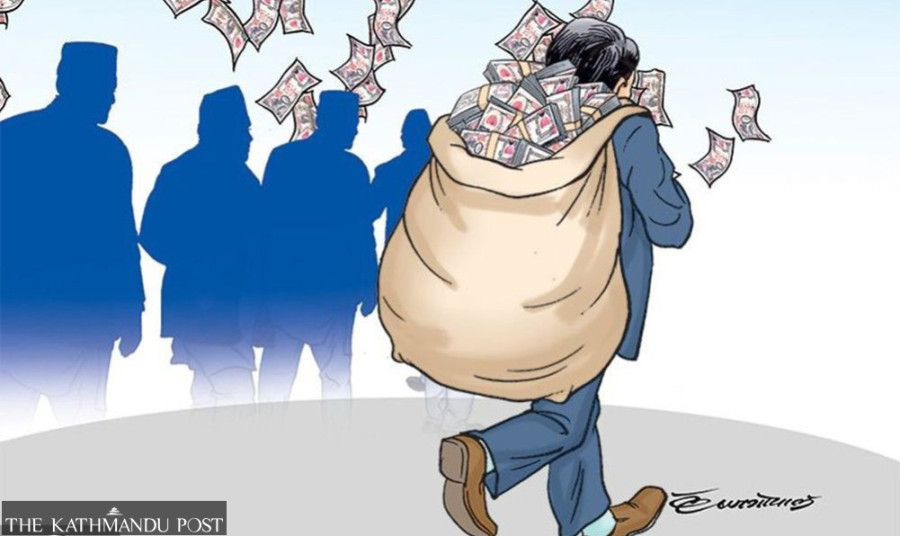National
Amended anti-corruption law holds Nepali civil servants accountable for inaction
The amendment penalises civil servants not only for abuse of authority but also for indecision.
Rajesh Mishra
Nepal has introduced a fresh provision in its newly amended anti-corruption law that will penalise public officials not only for the abuse of authority but also for their inaction or indecision.
The amended Anti-Corruption Act-2002, which took five years to pass through the federal parliament, has now come into effect following presidential approval.
Under the new law, any public official who is found to have deliberately delayed decision-making—without valid reason and to benefit themselves or others—resulting in a loss to public institutions or individuals, will be held accountable for the inaction.
Offenders could face up to six-month imprisonment, or a fine of up to Rs50,000, or both, depending on the severity and consequences of the offence. If the damage caused is quantifiable, the fine will correspond to the amount of loss.
The amendment comes in response to a growing trend among civil servants of avoiding decisions to protect personal interests. Lawmaker Hridayaram Thani, a member of the State Affairs and Good Governance Committee in the House of Representatives, stated that the new provisions aim to curb bureaucratic tendencies to shift responsibilities to others, resulting in delays in essential public services.
Previously, many decisions were found to have been unnecessarily forwarded to the Cabinet to avoid scrutiny, as Cabinet decisions are immune to investigation from anti-corruption watchdogs such as the Commission for the Investigation of Abuse of Authority (CIAA).
The revised Act also imposes up to one year’s imprisonment or a fine of up to Rs500,000—or both—for officials found guilty of abusing their official position or duties.
The law now enables the use of modern investigative tools, including undercover operations, interception of communication (with court approval), and electronic surveillance. Investigators are also authorised to access digital systems and use informants or undercover agents to gather intelligence.
Additionally, courts may now accept audio, visual, or audiovisual recordings as evidence. Witnesses may be examined via video conferencing, streamlining judicial procedures.
The revised Act introduces stricter penalties for bribery. A minimum prison sentence of one month is now mandatory for proven bribery cases, even for amounts under Rs50,000—where previously no minimum sentence was prescribed. Bribes exceeding Rs100 million may result in 10 to 14 years of imprisonment.
Officials charged with corruption will continue to be automatically suspended until the final resolution of the case.
This first amendment to the 2002 Anti-Corruption Act was originally tabled in the National Assembly in 2020 and was formally certified by the President on March 16.




 9.83°C Kathmandu
9.83°C Kathmandu














